Hamsters are small, cute, and furry pets that have become a popular choice for many people. These little creatures are not only adorable but also make great companions. If you own a hamster, you’ll know that they have a big appetite and love to munch on different types of foods. One common question that many hamster owners have is whether or not their furry friend can eat carrots.
Carrots are a popular vegetable that is known for its sweet taste and bright orange color. They are packed with essential nutrients such as Vitamin A, Vitamin C, fiber, and potassium. But are carrots safe for hamsters to eat? The short answer is yes, hamsters can eat carrots. In fact, carrots can be a healthy and nutritious treat for your furry friend when given in moderation.
In this article, we will discuss the nutritional benefits of carrots for hamsters, how to feed them safely, and signs of overconsumption. So let’s dive in and learn more about these beloved root vegetables and their impact on our hamsters’ health.
>> READ MORE:
- Can Hamsters Eat Cheese? A Comprehensive Guide
- Can Hamsters Eat Zucchini? A Comprehensive Guide to This Popular Veggie
- Can Hamsters Eat Bananas? A Guide to Safe Treats
- Can Hamsters Have Bread? A Comprehensive Guide to Feeding Your Furry Friend
Nutritional Benefits of Carrots for Hamsters
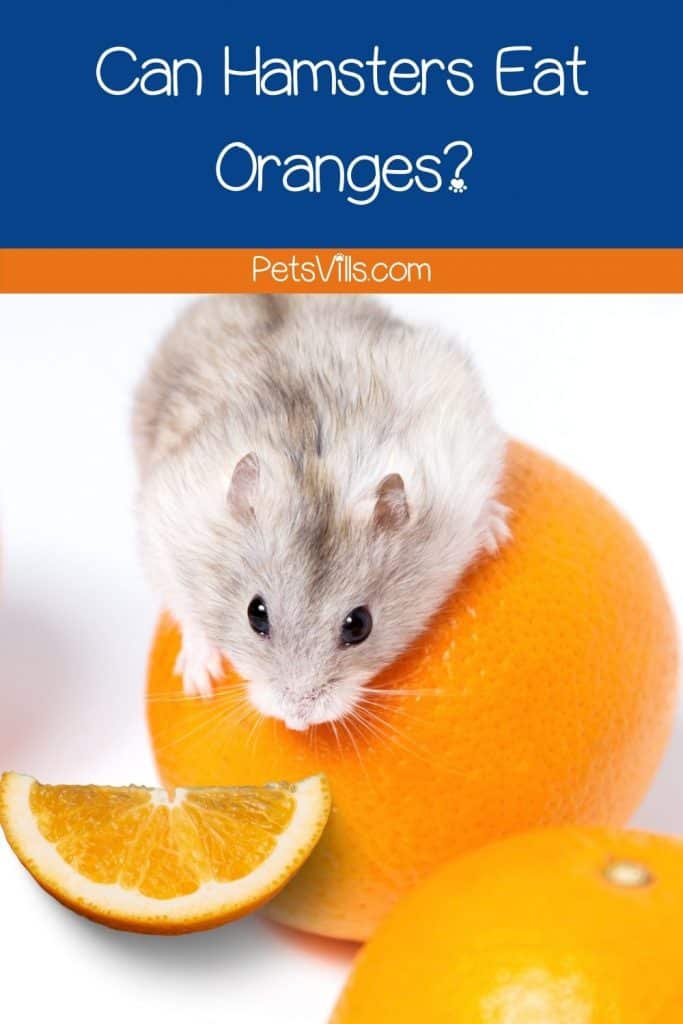
Vitamin A for Good Eyesight
One of the main benefits of carrots for hamsters is their high content of Vitamin A. This vitamin is crucial for maintaining good eyesight and promoting overall eye health in our furry friends. Hamsters have poor vision, and Vitamin A helps improve their eyesight and prevents any potential eye problems. It also supports the growth and development of healthy retinal cells in hamsters, which are responsible for converting light into images.
According to the National Research Council, a hamster’s recommended dietary allowance for Vitamin A is 5000 IU/kg (International Units per kilogram) of food. You may wonder how many carrots it would take to provide this amount of Vitamin A to your hamster. For reference, a medium-sized carrot (61g) contains approximately 10191 IU of Vitamin A, which is more than double the recommended allowance for a hamster. This means that just one carrot can fulfill your hamster’s daily Vitamin A needs.
Boosting the Immune System with Vitamin C
Apart from Vitamin A, carrots are also rich in Vitamin C, another essential nutrient for hamsters. Vitamin C is a powerful antioxidant that helps protect cells from damage and boosts the immune system. Hamsters are prone to respiratory infections, and Vitamin C plays a vital role in preventing and treating these health issues. It also aids in wound healing, as well as supports the production of collagen, a protein that is important for healthy skin and fur.
The recommended dietary allowance for Vitamin C in hamsters is 25 mg/kg. A medium-sized carrot contains about 6.3 mg of Vitamin C, so it would take several carrots to meet this requirement. However, it is always advisable to provide a variety of fruits and vegetables in your hamster’s diet to ensure they receive an adequate amount of Vitamin C.
High Fiber Content
Another great benefit of carrots for hamsters is their high fiber content. Fiber is essential for a hamster’s digestion as it helps move food through the digestive tract and prevents constipation. According to the National Research Council, hamsters should consume 5-8% of their body weight in fiber per day. This means that a hamster weighing 100 grams should have a daily fiber intake of 5-8 grams.
A medium-sized carrot contains approximately 2.3 grams of fiber, which is almost half of what a hamster needs in a day. Adding a small amount of carrot to your hamster’s regular diet can help them maintain a healthy digestive system.
How to Feed Carrots to Your Hamster Safely
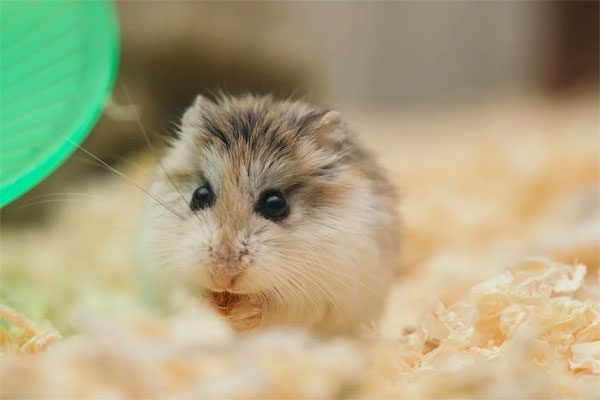
Now that we know the nutritional benefits of carrots for hamsters, let’s talk about the proper way to feed them to your furry friend. As with any new food, it is essential to introduce carrots slowly into your hamster’s diet. Abrupt changes in their diet can upset their stomach and lead to digestive issues.
Introduce Carrots Gradually
Start by giving a small piece of carrot, about the size of a pea, to your hamster. Observe their reaction and wait for 24 hours before adding more carrot to their diet. If your hamster shows no signs of discomfort or digestive issues, you can gradually increase the amount of carrot in their diet. However, always remember to keep the total amount within the recommended dietary allowance of 5000 IU/kg for Vitamin A and 25 mg/kg for Vitamin C.
Wash and Peel the Carrot
Before feeding carrots to your hamster, make sure to wash them thoroughly under running water. This will remove any dirt or chemicals that may be present on the surface of the carrot. Also, always peel the carrot before giving it to your hamster. The outer layer of the carrot may contain bacteria or pesticides that can be harmful to your pet.
Cooked vs. Raw Carrots
Hamsters can eat both raw and cooked carrots, but it is advisable to feed them cooked carrots as it is easier for them to digest. Raw carrots can be difficult for hamsters to chew, especially if they are young or have dental issues. Cooking softens the carrot, making it easier for them to eat and digest. It also helps release some of the nutrients, making them more readily available for absorption.
When cooking carrots for your hamster, avoid using any seasonings or oils as these can be harmful to them. Simply steam or boil the carrots and let them cool down before giving them to your furry friend.
Avoid Baby Carrots
Many people prefer to feed their hamsters baby carrots as they are smaller and easier to handle. However, these baby carrots are actually just regular carrots that have been cut into smaller pieces. The problem with this is that baby carrots usually come in a bag and may have been washed with chlorine before packaging, which can be harmful to your hamster.
It is best to stick to regular-sized carrots and cut them into smaller pieces for your hamster. This way, you can ensure that the carrot has been properly washed and does not contain any harmful chemicals.
How Much Carrot is Too Much for a Hamster?
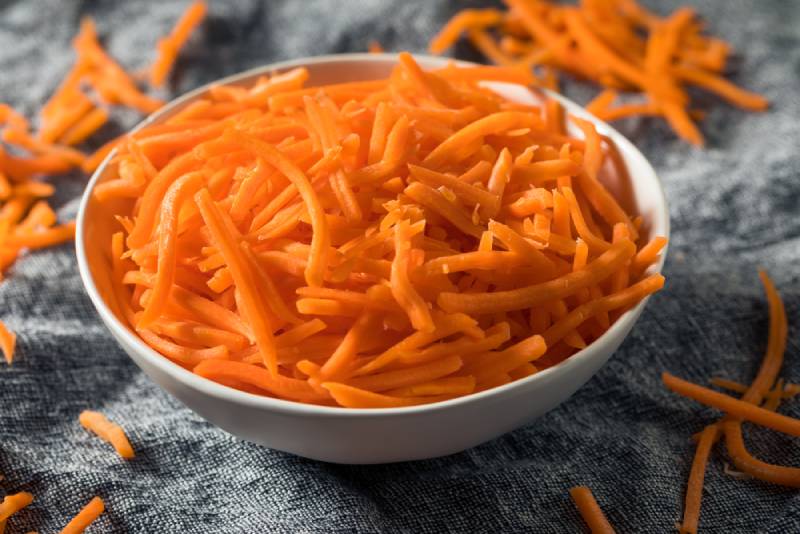
While carrots are a nutritious treat for hamsters, it is essential to give them in moderation. A diet too high in carrots can cause health issues in hamsters. Carrots are high in sugar and starch, which can lead to obesity, diabetes, and other health problems if consumed in excess.
The general rule of thumb is to limit the amount of carrot to no more than 10% of your hamster’s daily food intake. This includes all types of treats, not just carrots. For example, if your hamster weighs 100 grams, their total daily food intake should be about 15-20 grams, and only 1.5-2 grams of that should be carrot. It may not seem like a lot, but remember that hamsters are small animals with tiny stomachs, and too much carrot can have adverse effects on their health.
Signs of Carrot Overconsumption in Hamsters
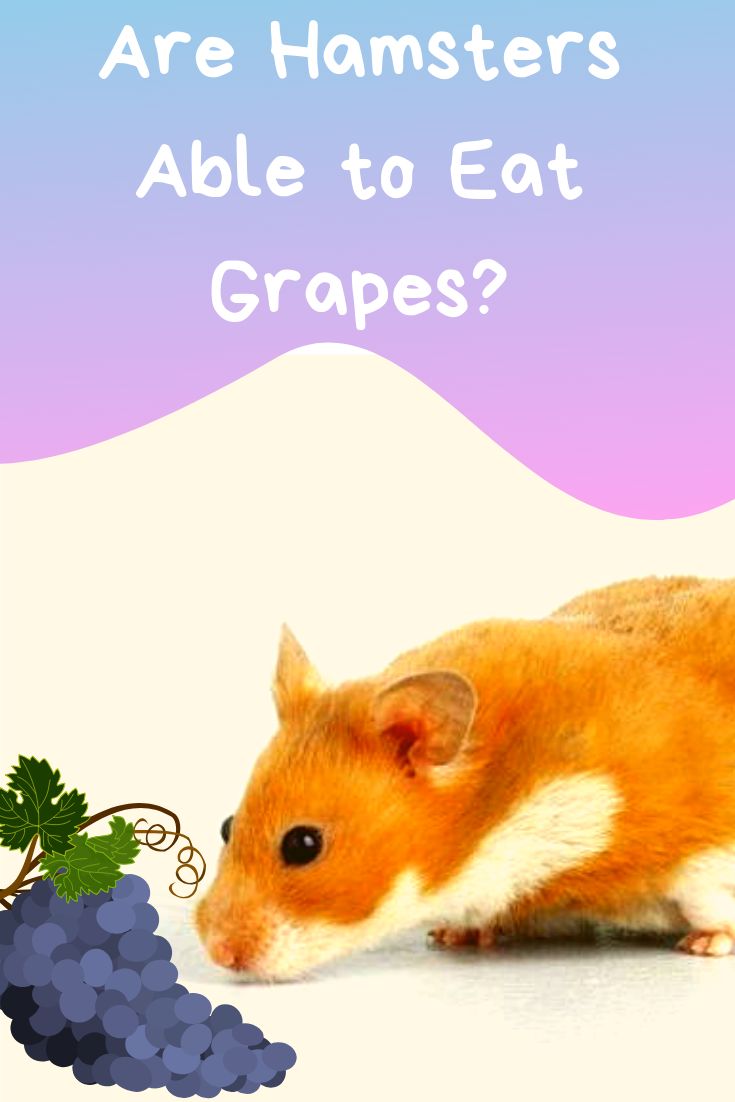
As mentioned earlier, overfeeding carrots to your hamster can result in various health issues. Some common signs of carrot overconsumption in hamsters include:
- Weight gain/obesity
- Diarrhea or soft stools
- Bloating or gas
- Dental problems
- Changes in behavior and activity levels
- Skin irritations
- Decreased appetite for other foods
If you notice any of these signs in your hamster, it is best to stop feeding them carrots and consult with a veterinarian. They may recommend reducing or eliminating carrots from your hamster’s diet and adding more hay and fresh water to promote better digestion.
Alternatives to Carrots for Your Hamster’s Diet
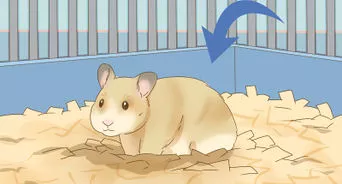
While carrots are a great treat for hamsters, they should not be the main part of their diet. A balanced diet for a pet hamster should consist primarily of a good quality commercial hamster food, supplemented with small amounts of fresh fruits and vegetables. Here are some other safe and healthy alternatives to carrots that you can include in your hamster’s diet:
- Leafy greens (spinach, kale, romaine lettuce)
- Other vegetables (broccoli, bell peppers, cucumbers)
- Fruits (apples, strawberries, blueberries)
- Whole grains (oats, barley, quinoa)
- Timothy hay (for fiber and dental health)
It is important to note that while these foods are safe for hamsters, they should also be given in moderation. Each type of food has its own recommended allowance, and it is crucial to stick to those guidelines to ensure your hamster receives a well-balanced diet.
Conclusion
In conclusion, hamsters can safely eat carrots as part of a balanced and varied diet. Carrots are a great source of Vitamin A, Vitamin C, and fiber, which are essential for maintaining good eyesight, boosting the immune system, and promoting healthy digestion in hamsters. However, it is important to introduce carrots gradually, wash and peel them before feeding, and avoid overfeeding them to prevent potential health issues. Always remember to consult with a veterinarian if you notice any changes in your hamster’s behavior or health after introducing new foods into their diet. By following these guidelines, you can safely give your furry friend a nutritious and delicious treat in the form of carrots.

